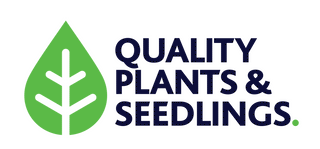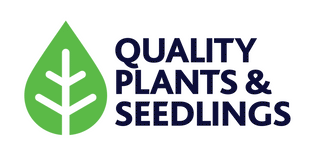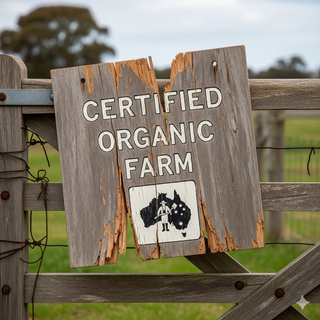The short version
The withdrawal of NASAA Certified Organic (NCO) from export certification has forced hundreds of Australian operators to transfer to other approved certifiers on tight timelines. That shock has spotlighted a broader issue: high, layered costs and duplicated paperwork that many producers argue make certification uneconomic—even when they still value organic farming itself. (DEFRA, ABC)
What happened and why it matters
-
On 26 June 2025, Australia’s Department of Agriculture, Fisheries and Forestry (DAFF) issued a notice that NCO had ceased export-certification activities under the National Standard and would no longer assess, re-certify, or issue Organic Goods Certificates (OGCs). A departmental FAQ set out transfer steps for affected operators. (DEFRA)
-
Media reporting indicates around 400 Australian businesses need to re-certify by late September to maintain export access. (ABC)
-
Separately, the IOAS (an international accreditation body) stated it had withdrawn NCO’s accreditation, noting the company had ceased business effective 26 June 2025. (ioas.org)
How many export certifiers are operating in Australia?
As of 8 July 2025, DAFF lists four approved certifying bodies for export-bound organic and biodynamic goods:
ACO Certification Ltd (ACO), Bio-Dynamic Research Institute (BDRI), Organic Food Chain Pty Ltd (OFC), and Southern Cross Certified Australia Pty Ltd (SXC). (DEFRA)
Why some producers are stepping back from certification (while keeping the values)
Producers and industry sources frequently point to cost and administrative load rather than a rejection of organic principles:
-
Typical annual certification for a single-site farm is commonly AUD $1,000–$2,000 (varies by certifier, scope, and markets). (austorganic.com)
-
Per-shipment certificates (OGCs/transaction certificates) are commonly charged per consignment (e.g., ACO fee schedule shows $70 for ACO-certified exporters and $120 for non-ACO, plus late-submission and postage/courier charges).
-
Auditor travel and accommodation are typically additional and can run ~$100–$450 in common cases (charged at cost).
When multiple destination markets require different attestations, audits and paperwork stack up. Many farmers say that’s why they shun the certification process—not the underlying environmental and animal-welfare values.
The structural quirk: export rules are strict, domestic rules aren’t
-
For exports, goods described as organic must be certified by a DAFF-approved certifier and be accompanied by an OGC before departure—this is a legal export requirement. (DEFRA)
-
Domestically, Australia still does not have a single, legislated national definition that must be met to use the word “organic” on labels (though a bill has been examined and there are ongoing calls for reform). (ABC)
Practical next steps if you’re affected
-
Contact one of the four DAFF-approved certifiers and request a streamlined transfer recognising your existing audit evidence. (DEFRA)
-
Plan export timelines around OGC issuance; lodgements and couriers can add delay and cost.
-
Communicate early with buyers about your transfer status.
Footnotes / sources (selected)
-
DAFF industry advice: “2025-03: Changes to approved certifying body – NASAA Certified Organic” (dates/effect; transfer guidance and FAQs). (DEFRA)
-
ABC Rural: reporting that ~400 businesses need to re-certify by late September to keep exporting. (ABC)
-
IOAS: notice of withdrawal of NCO accreditation and cessation of business effective 26 June 2025. (ioas.org)
-
DAFF: current list of approved export certifiers (ACO, BDRI, OFC, SXC) — page updated 8 July 2025. (DEFRA)
-
AOL (industry peak body): typical annual certification cost guidance for single-site farms ($1,000–$2,000). (austorganic.com)
-
ACO fee schedule: example per-certificate OGC charges and testing/travel charged at cost.
-
OFC fee structure: examples of typical travel ($100–$450) and sample testing ($230–$420), plus export certificate fees.
-
DAFF OGC policy: the legal requirement for an OGC for export-bound organic goods. (DEFRA)
-
ABC News (domestic regulation context): calls to tighten organic labelling rules (no mandatory national standard yet). (ABC)
Further reading (official and explanatory)
-
DAFF — Approved certifying bodies (export) (who can certify today). (DEFRA)
-
DAFF — NCO change notice + FAQs (operator transfer guidance). (DEFRA)
-
DAFF — OGC requirements (what an OGC is and why it’s required). (DEFRA)
-
AOL — Certification FAQs (cost ranges, what’s involved). (austorganic.com)
-
ACO — Services & Fees Schedule (certificate, testing, audit-travel examples).
-
OFC — Fee Structure (export certificate and travel/testing examples).
-
ABC News — Domestic “organic” labelling (policy debate and current gap). (ABC)




